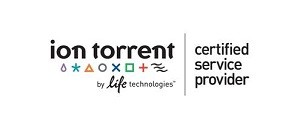The term “neuronal migration disorders” refers to a broad category of diseases related to brain development and include lissencephaly, agenesis/aplasia of the corpus callosum and microgyria/polymicrogyria. These disorders occur while the baby grows in the womb, early in pregnancy, when the brain develops neurons that move to form neural networks, which are ultimately responsible for the transmission of messages throughout the body. If the genetic instructions for the proper movement/migration of the neurons do not function properly, neural networks are not formed as they should and the result is that areas of the brain exhibit abnormalities or are altogether absent.
The clinical symptoms of the diseases of this class vary according to the area of the brain which is affected and the severity of the abnormality. It is likely that at birth there may be few visible signs that a child has such a disorder and the symptoms may become apparent when the child does not grow and develop properly. Symptoms may include varying degrees of developmental delay, motor problems, seizures and learning disabilities. Typically, the diagnosis is made through magnetic resonance imaging (MRI) of the brain, showing a characteristic brain malformation.
The vast majority of disorders and diseases in this class have an underlying genetic cause, associated with mutations in several (~300) genes. The mode of inheritance is also variable and may be autosomal recessive (parents healthy carriers), X-linked (only males affected, usually inherited from a mother-carrier), or de novo dominant (new mutation, not inherited). While there is no cure for these diseases, the precise diagnosis through genetic testing is of particular value for both the prognosis and treatment of the disease and to assess the reproductive risk in the family.
In order to contribute towards the diagnosis of these complex diseases in patients and families, InterGenetics has developed and offers an NGS panel for the genomic analysis of 301 genes (see gene list), which we now know to be associated with neuronal migration disorders (NMD) and other related diseases, regardless of the mode of inheritance.
We perform DNA sequence analysis, via Next Generation Sequencing (NGS) on a Genome Analyzer – Ion Proton platform, of all exons and intron-exon junctions/splice sites of the 301 genes, allowing us to detect >98% of all pathogenic mutations of the genes through the use of specially developed bioinformatics tools.
Where possible and/or necessary, we carry out additional MLPA analysis in order to detect deletions/duplications of the genes (please consult the final test report).
The test is highly sensitive and complex, so it is necessary that the results are assessed by a specialized team of clinical and molecular geneticists, in order to ensure safe and reliable testing.
Proper clinical genetic assessment and genetic counseling, both before and after testing, is essential in order to determine the optimum testing strategy and also to communicate properly the concepts of pathological and normal.

